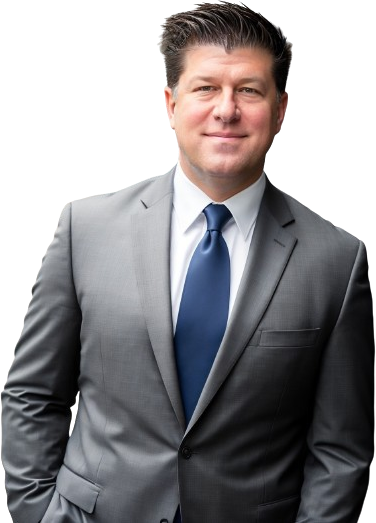
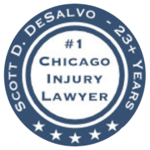

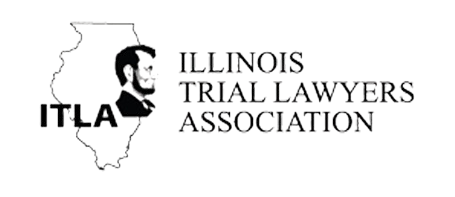
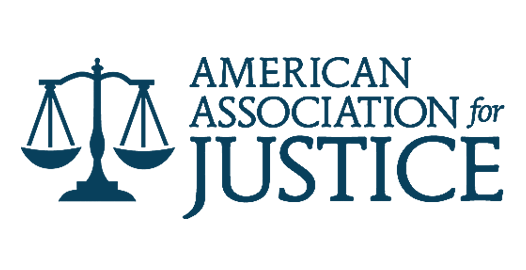
If a medication error or pharmaceutical mistake has hurt you in Chicago, you need a lawyer who understands pharmacy negligence and isn't afraid to take on big chains like Walgreens, CVS, or hospital pharmacies—someone like me, Scott DeSalvo.
Let me tell you something personal that changed my life.
When I was nine years old, my father—a truck driver and a proud Teamster—was severely hurt at work. He was still a young man. That injury took everything from him. His neck, back, and spine were permanently damaged. He was never the same.
After he got hurt, he hired the wrong law firm to handle his case. They were rude to him. They didn't explain things. They didn't fight for everything he deserved. His case dragged on for 17 years. SEVENTEEN YEARS. And at the end of it all, his own lawyer sued him for more fees.
We grew up poor once my father could no longer work.
That experience is why I became a personal injury lawyer. And it's why I handle medication error cases different than other lawyers in Chicago.
About three years ago, I got a call from a woman named Sarah in Lincoln Park. Her doctor had prescribed her blood pressure medication. She picked it up at her regular pharmacy on Armitage Avenue. But the pharmacy gave her ten times the dose she was supposed to take. Nobody caught it—not the pharmacist, not the tech, nobody.
Three days later, Sarah collapsed at home. Her husband found her unconscious. She spent two weeks in the ICU at Illinois Masonic. Her kidneys nearly failed. The medical bills were over $80,000. And the pharmacy's insurance company kept telling her it was her fault for not checking the label more carefully.
Sarah's story isn't rare. Medication errors happen every single day in Chicago. At Walgreens, at CVS, at Jewel-Osco pharmacies, at independent pharmacies, at hospital pharmacies. Wrong medication, wrong dosage, wrong patient, dangerous drug interactions that should've been caught. People get seriously hurt. People die.
If a medication error has hurt you or someone you love, here's what I want you to know: you don't have to figure this out by yourself. And you definitely shouldn't trust the pharmacy or hospital to do the right thing. They won't.
Here's my promise to you: No money out of pocket. No fee until we win. Free consultation any time—24/7/365. You can call me at (312) 500-4500 day or night. Because medication errors don't happen on a convenient schedule, and neither should getting legal help.

Let's be clear about something right away.
Not every bad reaction to medication is someone's fault. Some people have allergies nobody knew about. Some medications just don't work for certain people. That's not malpractice.
But when a pharmacist, doctor, nurse, or hospital makes a preventable mistake with your medication, and that mistake hurts you, that's different. That's when you might have a valid claim.
The question I ask in every case is straightforward: Did someone fail to meet the standard of care that a reasonably careful medical professional in Chicago would follow? And did that failure cause your injury?
If the answer to both questions is yes, you probably have a case.
I've handled medication error cases involving every type of pharmacy in Chicago and the suburbs. Big chains, small independent pharmacies, hospital pharmacies at Rush and Northwestern and Stroger and Advocate. I know what these mistakes look like. I know how to prove them.
They're the same thing. Both refer to mistakes with prescription medications—wrong drug, wrong dose, dangerous interactions. Sometimes the doctor orders the wrong medication, and sometimes the pharmacy gives you the wrong medicine. Whether it happened at Walgreens, CVS, a hospital pharmacy, or anywhere else, you may have a case.
YES. If a pharmacist, pharmacy tech, or prescribing doctor made a preventable mistake that hurt you, Illinois law allows you to recover compensation. You have two years to file, so don't wait.
Nothing upfront. I work on contingency (typically 33⅓%). I advance all costs. No win = no fee. You'll never pay me out of pocket.
Pharmacies always deny fault at first. That's why we need medical experts, prescription records, and proof of what went wrong. I've handled medication error cases against every major pharmacy chain in Chicago.
Usually, two years from when you discovered the error (or should have discovered it). Calculating deadlines is complicated and there are things that can extend a deadline, which is why you MUST talk to a qualified lawyer right away. Evidence disappears fast—call 312-500-4500 now for a free consultation.
Medication errors are way more common than most people realize. Studies show that medication errors harm at least 1.5 million people every year in this country. That's just the ones we know about. Plenty more go unreported.
Here are the medication errors I handle most often:
This is exactly what it sounds like. Your doctor prescribes one medication, but the pharmacy gives you something completely different.
Maybe the pharmacist misread the prescription. Maybe they grabbed the wrong bottle. Maybe the pharmacy tech made a mistake entering it into the computer. Whatever the reason, you end up taking medication you were never supposed to take.
I've seen cases where people were given powerful medications meant for someone else. Blood thinners when they needed antibiotics. Chemotherapy drugs instead of cholesterol medication. The results can be catastrophic.
The pharmacy gives you the right medication but the wrong strength. Your doctor prescribed 10mg, but you got 100mg. Or maybe the directions on the label are wrong—it says take two pills twice a day when it should say take one pill twice a day.
This happens more than you'd think, especially with medications that come in multiple strengths. And with some medications, even a small dosage error can cause serious harm or death.
I had a case where a pharmacy in Oak Park gave a client 50mg of a medication when the prescription was for 5mg. She took it for a week before she ended up in the emergency room at Rush Oak Park Hospital with symptoms nobody could figure out at first. Turns out she was being massively overdosed because someone at the pharmacy didn't pay attention.
Pharmacists have a professional responsibility to check for dangerous drug interactions before filling your prescription. Their computer systems flag potential problems. They're supposed to review your medication history and call your doctor if there's a concern.
But sometimes they don't. They're too busy. They're understaffed. They ignore the warning. Or they just don't care enough to take the time.
I've represented people who suffered strokes, seizures, organ damage, and other serious injuries because a pharmacist didn't catch a dangerous drug interaction that should've been obvious.
Believe it or not, pharmacies sometimes give medication to the wrong person. Maybe two customers have similar names. Maybe someone didn't verify the date of birth or address. Maybe the pharmacy was chaotic and disorganized.
You walk out with someone else's medication, and they walk out with yours. Or you take medication meant for a different patient entirely who happened to have a similar name.
These errors should never happen. But they do.
Sometimes the medication itself is correct, but the pharmacist fails to give you critical information about how to take it safely.
They don't tell you to take it with food. They don't tell you to avoid alcohol. They don't tell you it'll make you drowsy and you shouldn't drive. They don't warn you about side effects you should watch for. They don't explain how to store it properly.
When pharmacists fail to provide adequate counseling about your medication, and you get hurt as a result, they can be held liable.
Medication errors don't just happen at retail pharmacies. They happen in hospitals too—sometimes even more frequently.
Nurses administer the wrong medication or wrong dose. Hospital pharmacies send the wrong drug to the floor. Doctors prescribe medications without checking what else the patient is taking. Electronic health records get mixed up between patients.
I've handled medication error cases at Northwestern Memorial, Rush University Medical Center, University of Chicago Medical Center, Advocate Christ, Advocate Illinois Masonic, Loyola, Mount Sinai, UI Health, and smaller community hospitals throughout Chicago and the suburbs.
Some pharmacies prepare custom medications by mixing ingredients—this is called compounding. When done wrong, compounding errors can result in medications that are too strong, too weak, contaminated, or contain the wrong ingredients entirely.
These errors can be especially dangerous because compounded medications often aren't subject to the same quality control as manufactured drugs.
I had a case involving a compounding pharmacy in Schaumburg that mixed a topical pain medication for a client. They got the concentration wrong—way too strong. My client applied it as directed and ended up with severe chemical burns and permanent scarring.
If a medication error has hurt you, Illinois law allows you to recover several types of compensation. Let me break down what that actually means in real terms.
You can recover your medical expenses—every penny you've spent or will spend treating the injuries caused by the medication error. That includes emergency room visits, hospital stays, doctor appointments, additional prescriptions to counteract the error, rehabilitation, ongoing treatment, all of it.
You can recover lost wages if you missed work because of the medication error. And if your injuries are serious enough that you can't work at all anymore, or can't do the same job you used to do, you can recover compensation for that lost earning capacity.
You can also recover for pain and suffering. That means the physical pain you experienced and the emotional trauma of what happened. If you developed anxiety about taking medications, depression from the injury, PTSD from a life-threatening reaction—that's all compensable.
If the medication error caused permanent injuries or disabilities, you deserve compensation for how that's changed your life. Your ability to enjoy activities you used to love. Your relationships. Your quality of life.
And in cases involving really egregious conduct—like a pharmacy that knew about a pattern of errors and didn't fix it, or a pharmacist who was impaired on the job—Illinois allows for punitive damages designed to punish that behavior and deter others from doing the same thing.
One thing that's important to understand: Illinois doesn't cap damages in medication error cases. Some states limit how much you can recover. Illinois doesn't. If you've been catastrophically injured, you can recover full compensation for all your losses.

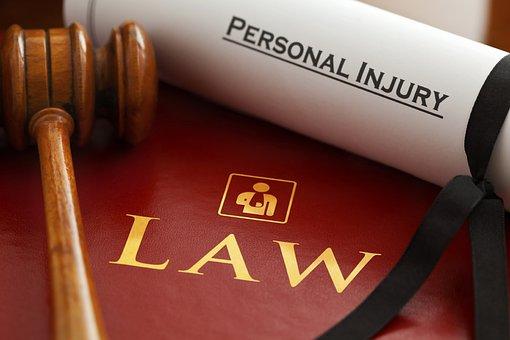

These cases aren't simple. They require understanding pharmacy law, medical standards of care, pharmacology, and how medications interact with the human body.
You need to prove not just that an error occurred, but that the error caused your specific injuries. That requires medical experts who can review your records and explain the causal connection to a jury.
You're also going up against pharmacies and hospitals that have insurance companies and legal teams dedicated to defending these cases. Walgreens, CVS, big hospital systems—they have deep pockets and aggressive lawyers. They'll spend a fortune defending a case just to avoid setting a precedent, even when they know they're in the wrong.
I've spent years building relationships with medical experts, pharmacists, and physicians who can review these cases and testify when needed. I've invested tens of thousands of dollars in continuing education and trial training—way more than Illinois requires—because I want to give my clients every advantage possible.
I'm a graduate of Gerry Spence's Trial Lawyers College—one of the most prestigious trial advocacy programs in the country. I've completed "The Edge" program. Not one in 10,000 lawyers has completed the training I have. I did it for one reason: so you get the very best representation possible.
I've handled medication error cases against every major pharmacy chain in Chicago and every major hospital system. I'm not intimidated by their resources, and I know their playbook.
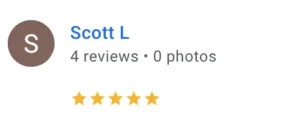
Illinois law gives you two years from when you discovered the medication error (or reasonably should have discovered it) to file a lawsuit. There's also an absolute deadline—usually four years from when the error occurred, with some exceptions.
This is called the statute of limitations. If you miss it, you're out of luck. You lose your right to compensation forever, no matter how strong your case is.
Don't let that happen. If you think a medication error might have hurt you, call me now. Not next month. Not when you get around to it. Now.
Evidence disappears. Witnesses forget details or move away. Pharmacies destroy records. The longer you wait, the harder it becomes to prove your case.
Find Out What YOUR Case Might Be Worth...for free.
There are plenty of personal injury lawyers in Chicago. Some of them are good. Some advertise a lot. Some have big offices downtown.
So why should you call me?
Because what happened to my father when I was nine years old fundamentally shaped how I practice law. I saw firsthand how the legal system can fail injured people when lawyers don't give a damn about their clients. I decided that would never happen to anyone who hired me.
I only represent injured people. Never insurance companies. Never defendants. I will never take a case defending a pharmacy or hospital that made a medication error.
Your fight is my fight. Period.
Some lawyers only want the easy, big-money cases. If your case looks tough or complicated, they pass.
I don't do that.
I take the tougher cases other lawyers turn down. Because I believe everyone who's been hurt by negligence deserves excellent representation—not just the cases that look easy to win.
One of the biggest complaints I hear about other lawyers: "I never heard from them. I didn't know what was happening with my case."
That won't happen with me.
My office will keep you informed every step of the way. When you call, someone answers. When you have questions, we answer them. You'll always know where your case stands.
We talk like friends. Because that's how I treat my clients—like family.
I make it relaxed and zero pressure. I never chase clients. I never hustle and harass people.
Hiring a lawyer is your choice, and you should always work with the lawyer you like and trust. Never go with the high sales guys. They might be desperate for a case. And if they put pressure on you or act like a jerk, is that the lawyer you want to work with?
Either way, we end up as friends.
If you believe a medication error has hurt you, here's what you need to do immediately.
First, seek medical attention if you haven't already. Your health is the priority. Getting proper treatment also creates medical records that document what happened to you.
Second, keep the medication bottle and any packaging. Don't throw it away. That's evidence. The label shows what you were given and what the instructions were.
Third, get copies of your medical records from your doctor and from any hospital or urgent care where you were treated after the medication error.
Fourth, write down everything you remember while it's still fresh. What symptoms did you experience? When did they start? What did the pharmacy tell you when you picked up the medication? Document everything.
Fifth—and this is important—don't talk to the pharmacy's insurance company or risk management people without talking to a lawyer first. They're not trying to help you. They're trying to minimize the pharmacy's liability. Anything you say can and will be used against you later.
Call me at (312) 500-4500 any time, day or night. The consultation is free. I'll listen to what happened, answer your questions, and give you honest advice about whether you have a case.
No pressure. No obligation. We just talk.

My office is in downtown Chicago, right across from the Courthouse and the Workers Compensation Commission. This area is known as "Lawyer's Row."
That's because although we settle about 90% of our cases quickly for our clients, we also go to Court. You want a lawyer who the insurance companies know can afford the expensive rent downtown. And who is ready, willing, and able to fight and go to Court on your case if there are any problems.
I represent people throughout the entire Chicago area.
That includes every Chicago neighborhood—Lincoln Park, Lakeview, Wicker Park, Logan Square, Bucktown, River North, Streeterville, Gold Coast, Old Town, Hyde Park, South Loop, Bronzeville, Bridgeport, Pilsen, Little Village, Humboldt Park, Albany Park, Andersonville, Edgewater, Rogers Park, West Loop, Ukrainian Village, Beverly, Mount Greenwood, all of them.
And all the suburbs—Evanston, Skokie, Wilmette, Oak Park, Cicero, Berwyn, Naperville, Aurora, Joliet, Schaumburg, Arlington Heights, Des Plaines, Park Ridge, Elmhurst, Oak Lawn, Orland Park, Tinley Park, Bolingbrook, Wheaton, Downers Grove, Glenview, Northbrook, everywhere in Cook County, DuPage County, Lake County, Will County, Kane County.
Medication errors happen everywhere. At pharmacies on every corner. At hospital pharmacies downtown. At small independent pharmacies in the neighborhoods. I handle them all.
Of course, I visit my clients all over Chicago and the suburbs. We can meet at your home or at a local restaurant. Really, anywhere you feel comfortable.

Let me answer the questions people ask me most often about medication error cases.
If you took medication and had a bad reaction, it might or might not be an error. The question is whether the reaction was preventable. Did someone make a mistake that caused you to take the wrong medication, the wrong dose, or a medication that shouldn't have been prescribed to you given your medical history?
Call me and we'll talk through what happened. I can usually tell you pretty quickly whether you have a case.
Nothing upfront. Zero.
I work on contingency, which means I only get paid if you win. No money out of pocket, no retainer, no hourly fees.
I even advance all the costs of your case—getting medical records, hiring experts, filing fees, everything. If we don't win, you don't owe me anything.
In fact, you never pay out of pocket. I only get paid if you get paid first.
Pretty good deal, right?
That's fine. The forms you sign at the pharmacy don't prevent you from filing a lawsuit when they make a serious error. Those forms don't give pharmacies a free pass to be negligent.
Yes. Pharmacies are responsible for the actions of their employees, including pharmacy technicians. If a tech made a mistake that hurt you, the pharmacy can be held liable.
You'll need medical records documenting your injury, evidence of the medication error (like the prescription bottle), and an affidavit from a medical expert saying the pharmacy or prescriber violated the standard of care.
That sounds complicated, but that's my job. I handle all of that for you. You don't have to worry about it.
It depends. Some cases settle relatively quickly—within several months. Others take longer, especially if we have to file a lawsuit and take the case through discovery and possibly trial.
What I can promise is that I'll move your case as efficiently as possible while fighting for every dollar you deserve.
Hospital medication errors are absolutely something I handle. Nurses, hospital pharmacies, and doctors all make medication mistakes in hospital settings. The process is similar to pharmacy cases, but hospital cases often involve additional defendants.
Most medication error cases settle before trial, but there's no guarantee. If the insurance company won't offer fair compensation, I'm prepared to take your case to trial.
The insurance companies know I'm willing to go to court. That actually helps with settlement negotiations.
Pharmacies rarely admit fault right away. That's why we need to investigate, gather evidence, and often bring in expert witnesses who can explain what went wrong and why the pharmacy is responsible.
Maybe, depending on when you discovered the error and when it occurred. Call me right away so we can evaluate the timeline. The statute of limitations can be complicated, and you don't want to miss your deadline.
Keep it. Don't throw it away. Keep the bottle, the label, any packaging or paperwork that came with it. That's all evidence.
It depends on who made the mistake. Sometimes it's the prescribing doctor. Sometimes it's the pharmacist or pharmacy. Sometimes it's the hospital or nursing staff. Sometimes it's multiple parties.
During your free consultation, we'll talk about who should be held accountable in your specific case.
Your health insurance may cover some of your treatment costs after a medication error, but it won't compensate you for pain and suffering, lost income, or long-term disability. A lawsuit against the negligent provider is often necessary to recover the full value of your losses.
I'm so sorry for your loss.
If your loved one died because of a medication mistake, surviving family members may file a wrongful death lawsuit. Compensation can include funeral expenses, loss of financial support, and loss of companionship.
These cases are heartbreaking. They require a lawyer with compassion and experience. I've handled wrongful death cases involving medication errors, and I understand how to support families through this.
Both the doctor and the pharmacy have responsibilities. The doctor needs to prescribe the right medication and dosage. The pharmacy needs to fill it correctly and check for potential problems.
If either one makes a mistake, they can be held liable. Sometimes both are responsible.
Yes. If a medication was contaminated during manufacturing or compounding, and that contamination hurt you, you may have a claim against the manufacturer, the pharmacy, or both.
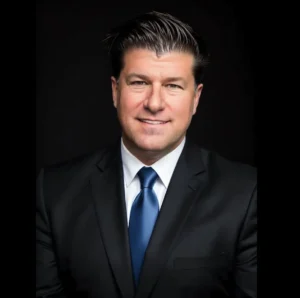
I need to be straight with you about something.
When a medication error happens, the pharmacy's insurance company will often reach out to you. They might sound sympathetic. They might say they want to "help" or "resolve this quickly."
Don't trust them.
Their job is to pay you as little as possible. They'll try to get you to accept a quick settlement before you understand how badly you're hurt. They'll ask you to give recorded statements that they'll use against you later. They'll delay and frustrate you in hopes you'll give up.
They'll also try to blame you. They'll say you didn't read the label carefully enough. They'll say you should have noticed the medication looked different. They'll say your other health problems caused your injury—not their mistake.
These are professional tactics designed to minimize their payout. Don't fall for them.
Before you talk to any insurance company, talk to me. Let me handle them while you focus on recovering.
Hiring Scott was one of the best moves I have made in my life. Scott is a down to earth person and attorney. Scott is a 5 star first class act who really knows his stuff. The Judge said his presentation was one of if not the best he had ever seen. Take my advice, hire Scott I’m sure you’ll be 200% satisfied I was.

Scott not only cares about the case, but he truly cares about his clients and that makes him the best lawyer I have ever met and hired! He won my case! He is thorough in everything he does. I highly recommend Scott, and will always refer him to family and friends.

I hired Scott DeSalvo upon a friend’s recommendation. His office kept me informed of developments as they happened, and I felt the settlement reached was fair considering my injuries. I would highly recommend Scott DeSalvo to represent your personal injury case.

If a medication error has hurt you, I can help.
I can't undo what happened. But I can fight to get you every dollar you deserve under Illinois law.
That means compensation for your medical bills, your lost income, your pain and suffering, your permanent injuries if any, and everything else the law allows.
Remember my promise: No money out of pocket. No fee until we win. Free consultation available 24/7/365.
Call me at (312) 500-4500 any time, day or night. Yes, even at 3 AM if that's when you're awake worrying about what to do next.
We can meet at my office downtown, at your home, at a coffee shop, wherever you're comfortable. Or we can talk by phone or video. Whatever works for you.
The call is free. The consultation is free. But the peace of mind of having your questions answered? That's priceless.
Don't wait until it's too late. Evidence disappears. Deadlines pass. The pharmacy's insurance company is already working on their defense. You need someone working for YOU.
Your fight is my fight. Call me now.
There's one particular medication error lawyer I'd like you to call. I'll let you guess who that is. (Yes, that's my sense of humor creeping in.)
Call (312) 500-4500 right now. Let's talk about what happened to you.

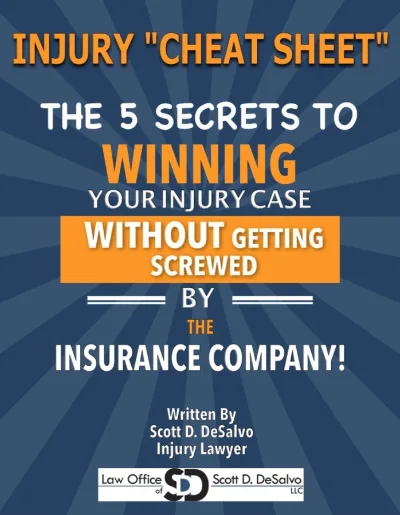

Scott DeSalvo founded DeSalvo Law to help injured people throughout Chicago and surrounding suburbs. Licensed to practice law in Illinois since 1998, IARDC #6244452, Scott has represented over 3,000 clients in personal injury, workers compensation, and accident cases.
No Fee Unless You Win | Free Consultation | 24/7 Availability Call or Text: (312) 500-4500
>>Read More
Main Office:
1000 Jorie Blvd Ste 204
Oak Brook, IL 60523
New Cases: 312-500-4500
Office: 312-895-0545
Fax: 866-629-1817
service@desalvolaw.com
Chicago and Other Suburban Offices
By Appointment Only